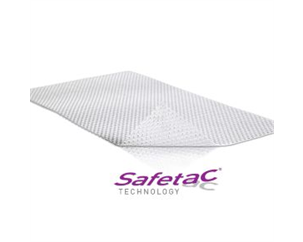When and how to use it
Mepitel with Safetac technology protects the wound and the skin. It prevents an outer dressing from sticking to the wound, therefore minimises trauma and pain. Mepitel is designed and clinically proven for a wide range of wounds such as skin tears, skin abrasions, surgical incisions, second degree burns, blistering, lacerations, partial and full thickness grafts, diabetic ulcers, venous and arterial ulcers. Use together with e.g. Mesorb® or for high exuding wounds with Mextra® Superabsorbent, and with Tubifast® fixation.
14 days of undisturbed cost-effective healing
Mepitel can be left in place for up to 14 days in order to not stress the wound or newly healed tissue. It will stay in place and not dry out which can cause trauma and pain. The wound can be inspected at any time thanks to Mepitels transparency. Mepitel promotes undisturbed wound healing as well as a cost-effective treatment.
Saving you money14
Treatment cost in 13 countries was analysed across a range of indications. Findings showed that Mepitel dressings provide cost-savings in areas such as trauma, burns, grafts, skin tears and hand surgery, also in low-income markets.




